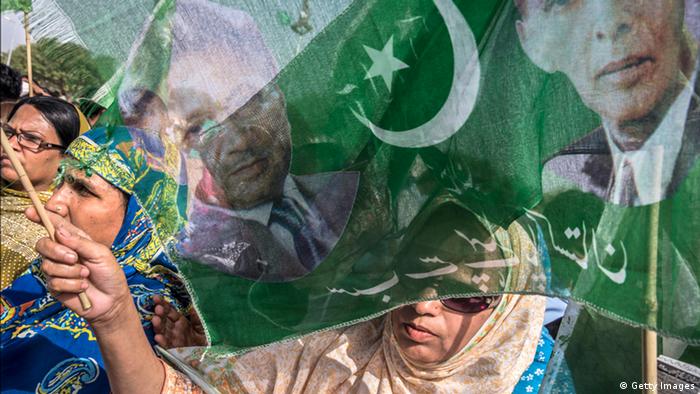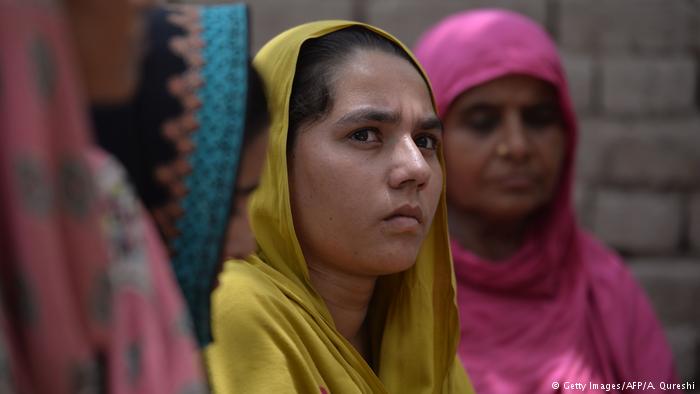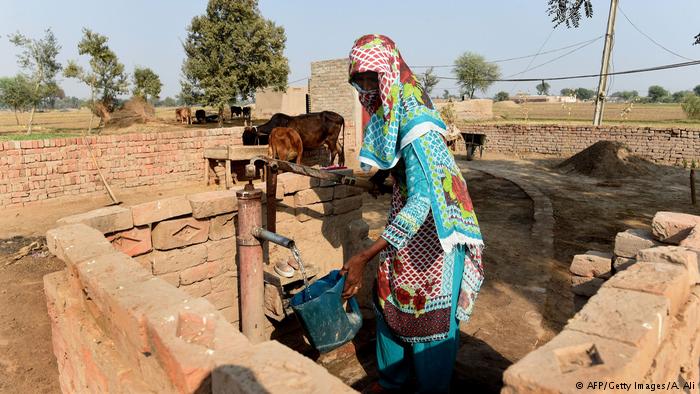Women achievers – making their mark in the political arena
 The twenty-first century described the rise of a new dawn for women in our part of the world. They were seen leaving their mark in various professional fields which were considered to be chiefly male dominated and they excelled. They also keenly participated in politics, another arena where men rule the roost, and proved their worth – a testimony of positive change in the mindsets of the people at large. Though their efforts did not attain the much-deserved limelight since media is nothing but a tool in the hands of the bigoted elements of our society, conventional manacles were severed as women strongly made their presence felt through untiring efforts. In the face of family pressures and various taboos, women have now taken a step forward to conquer new horizons through active participation in government and nation-building process. With minimal media support and propagation of their endeavours, it was only through their honest hard work that they made people realise the fact that they are as prolific part of the society as their male counterparts.
The twenty-first century described the rise of a new dawn for women in our part of the world. They were seen leaving their mark in various professional fields which were considered to be chiefly male dominated and they excelled. They also keenly participated in politics, another arena where men rule the roost, and proved their worth – a testimony of positive change in the mindsets of the people at large. Though their efforts did not attain the much-deserved limelight since media is nothing but a tool in the hands of the bigoted elements of our society, conventional manacles were severed as women strongly made their presence felt through untiring efforts. In the face of family pressures and various taboos, women have now taken a step forward to conquer new horizons through active participation in government and nation-building process. With minimal media support and propagation of their endeavours, it was only through their honest hard work that they made people realise the fact that they are as prolific part of the society as their male counterparts.
In the days of yore, considering the highly patriarchal set-up that we dwell in, who would have thought that women from townships and tribal areas would contest in elections alongside men with the aim to do something productive for their community and make a difference. Yet now they have conquered this peak. Kalpana Devi is one such brave woman who, in the face of multifarious conservative elements, ventured out to represent the Hindu community of Larkana contesting for the electoral constituency PS 36.
Brimming with the positive zeal to succeed and be useful to her community, Kalpana Devi, an advocate by profession, has previously contested in the high court bar elections and district bar elections, and is now the vice president of the Larkana District Bar Association. For the first time in the history of the sub-continent, a Hindu female became the chairperson of her community. Now that she is contesting in the general elections, she has been warmly welcomed by the people in her constituency illumining the widened outlook of the public. Shunning gender bias, people are more concerned about the benefit that a person may sincerely deliver for the community as a whole, may it be a male or a female.
Hailing from the middle strata of the society, Kalpana Devi and other women like her, who are also active in politics and working diligently for the people they represent, are a harbinger for change. Their electoral campaigns do not signify profligacy. It is simply through sincere and honest hard work that they have proved themselves worthy of getting votes. Kalpana, for instance, runs her campaign on foot along with her volunteers visiting the localities with minimal supplies and expenses. The people in the areas that she visits quench the thirst of her team by offering them water and that is enough to keep them going. It is when such women, who have borne hardships themselves as well, make it to the assemblies, they sincerely work for amelioration.
Though change is imminent and women are becoming an active member of the political play field where they get a chance to prove their mettle by contributing to law and policy making and playing an important part in improving the health and education sectors in Pakistan, they still need equal opportunities and funds to make ample use of their capabilities and solve the various problems that our society, particularly womenfolk are facing.
Lack of funds is one of the major problems that our women in politics face hence they are not able to fully solve the problems of their community and the area they represent no matter how much they strive. Hamida Banu and Shahida Bibi are active political workers of a party who make tireless efforts for the welfare of women in their locality, however, lack of funds do not allow them and others like them to make a difference and help their female counterparts. This is especially true for the rural areas where basic problems such as those of health and education are severe in magnitude. For instance, in schools, books are given free but they are not the only expense, children need electricity, copies, furniture and stationery to study in a viable environ. Similar is the case of the health sector in rural areas. In order to give free medicines and treatment to all, funds are needed, lack of which becomes the biggest glitch. The demand exceeds supply hence women, who need the most help in this regard, suffer.
The achievement of women in this day and age cannot be over-looked. Though they have limited resources and much more responsibilities to fulfil than men, the most important being the upbringing of a dutiful future generation, they do not shy away from serving their community and nation. It is high time they are given more and more opportunities and the right amount of funds that they require to complete the welfare projects that they have initiated, and the status that would help them perform their duties in the best way possible.
Author: Erum Adnan
Erum Adnan is currently the Senior Editor at International Islamic Publishing House, Riyadh (IIPH). She is also a columnist for You Magazine, The News, Jang Group of Newspapers; copywriter at 5th Element Advertising Agency and Take II PR Company, and a freelance writer who has contributed myriad of articles in various publications of Pakistan.
This is a special contribution on women and politics in Pakistan and is part of a combined project between the Friedrich Ebert Foundation in Pakistan and UKS, a research centre in Islamabad.






